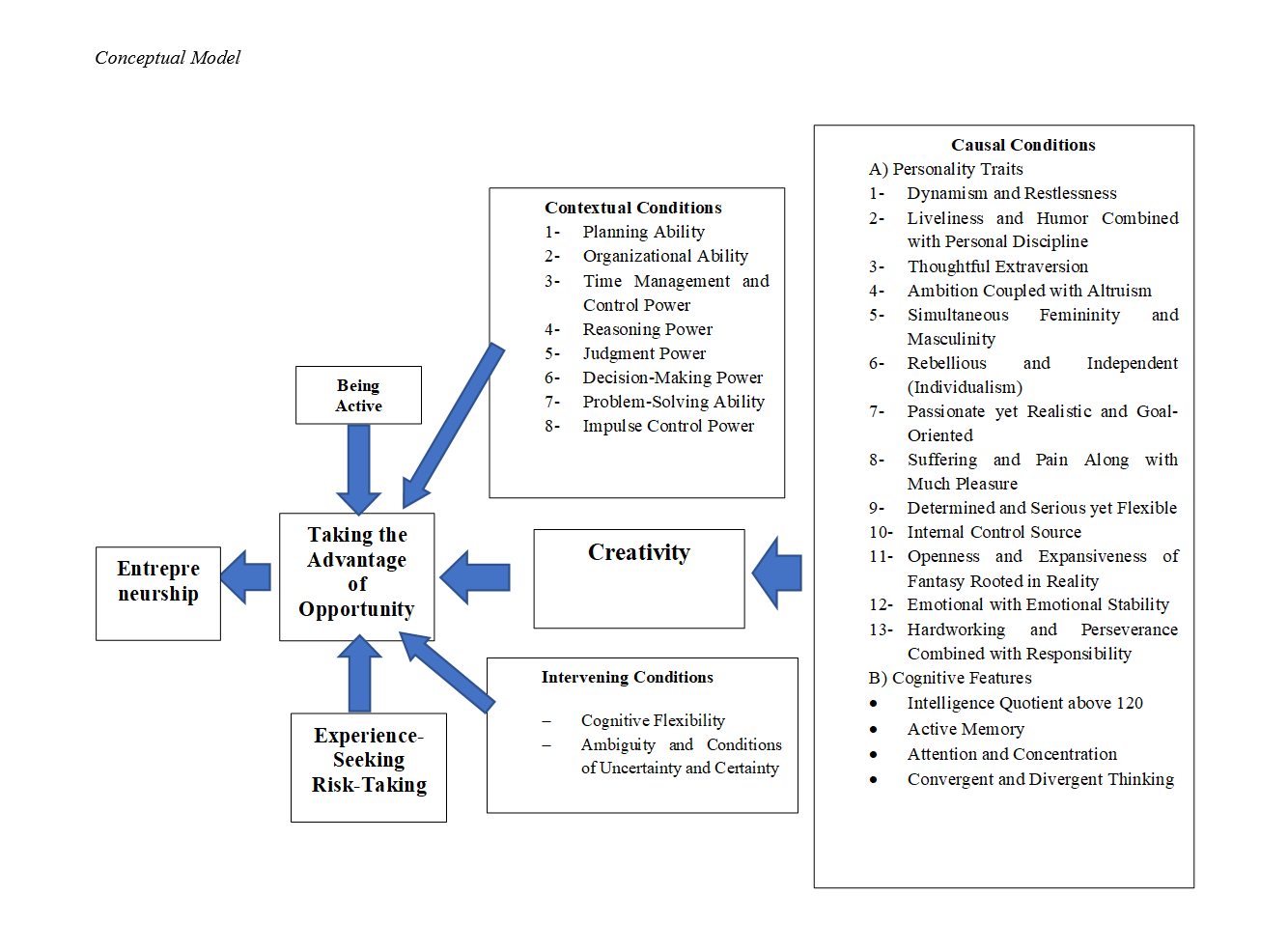Presenting a Conceptual Model Based on Cognitive Components and Personality Traits Affecting Entrepreneurial Competence through Document Analysis
Abstract
Objective: Following the publication of a report on sustainable development issues, the United Nations identified creativity, innovation, and entrepreneurship as key elements to address sustainable development challenges. The primary objective of this study was to present an appropriate conceptual model for entrepreneurial competence based on cognitive components and personality traits with an emphasis on creativity. In this context, to achieve a comprehensive and hypothetical understanding of the psychological factors' impact on entrepreneurship, an integration of both the creativity and entrepreneurship domains was utilized.
Methods and Materials: This study employed a qualitative meta-synthesis approach. According to the qualitative meta-synthesis method, the research population included all Persian and English scientific documents (research articles, theses, and books) published in the field of entrepreneurship from 2010 to 2022. To assess the quality of the found articles, the impact factor of a scientific journal was examined, and 90 articles were approved. Then, the relevant data from each article were extracted and entered into MAXQDA software. After reaching saturation, content analysis in this software was a systematic and continuous process of data comparison, conducted in three stages: open coding, axial coding, and selective coding, based on Strauss and Corbin's approach.
Findings: The results showed that the conceptual model of entrepreneurial competence based on cognitive components and personality traits with regard to creativity includes the following: Personality traits (dynamism and restlessness, lively interaction and humor combined with personal discipline, thoughtful extraversion, ambition with altruism, simultaneous femininity and masculinity, rebellious and independent, passionate yet realistic and goal-oriented, suffering and pain along with much pleasure, determined and serious yet flexible, internal control source, openness and the expansiveness of fantasy rooted in realities, emotional stability with emotional steadiness, hardworking and perseverance combined with responsibility). Cognitive components (intelligence quotient above 120, active memory, attention and concentration, convergent and divergent thinking), Contextual conditions (planning ability, organizational ability, time management and control, reasoning power, judgment ability, decision-making power, problem-solving ability, impulse control), Intermediate conditions (cognitive flexibility, ambiguity and conditions of uncertainty and certainty, being active, experience-seeking and risk-taking).
Conclusion: It can be concluded that a multidimensional empirical approach of cognitive components and personality traits provides more information.
Downloads

Downloads
Additional Files
Published
Submitted
Revised
Accepted
Issue
Section
License
Copyright (c) 2024 Faezeh Ebrahimi (Author); Maryam Moghadasin (Corresponding Author); Gholamali Afrooz , Samira Vakili (Author)

This work is licensed under a Creative Commons Attribution-NonCommercial 4.0 International License.








